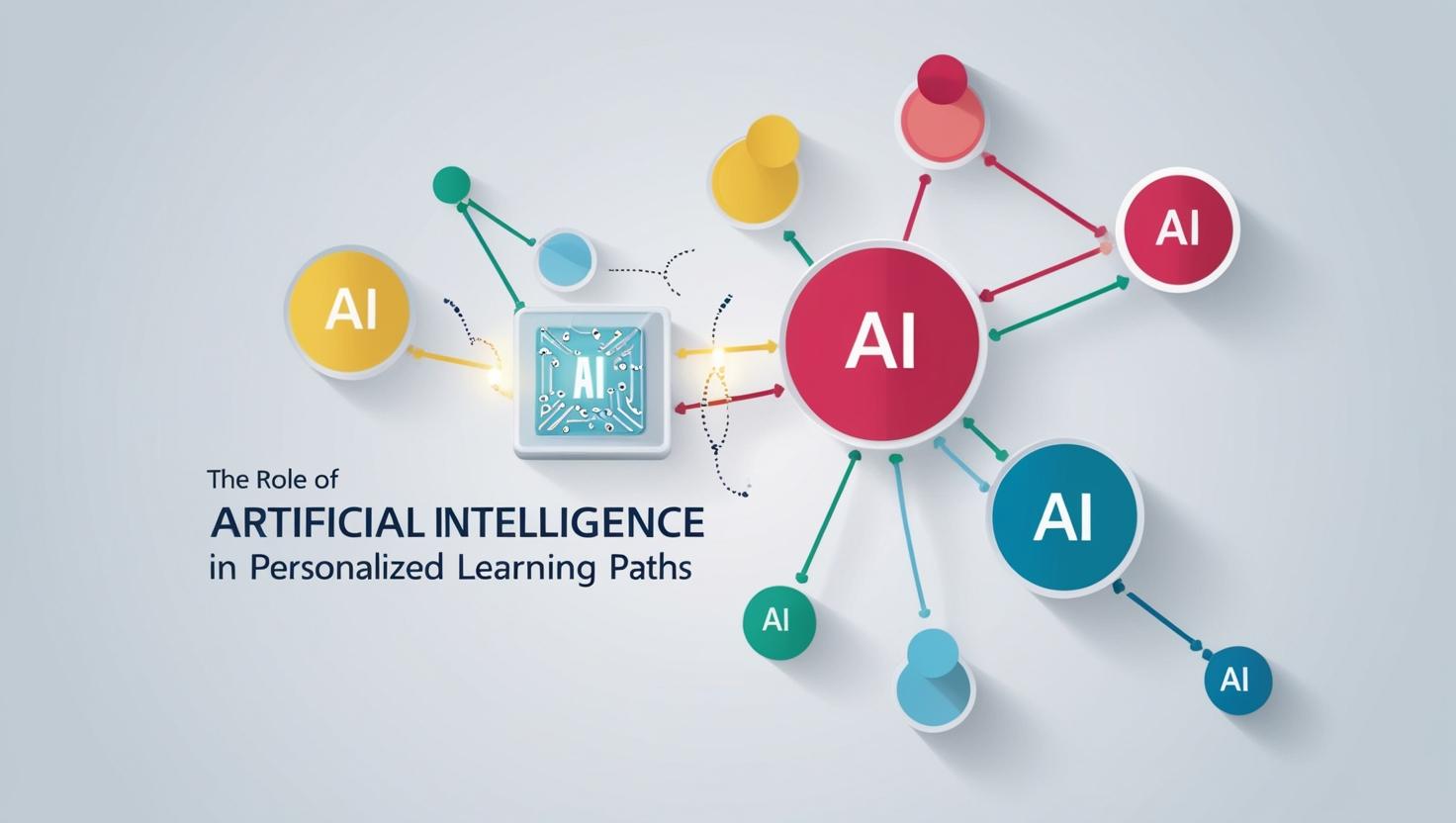In the rapidly evolving world of education, the role of artificial intelligence in education is becoming more pronounced than ever. AI is not just a buzzword; it’s transforming traditional learning systems into adaptive, personalised experiences that cater to individual student needs. One of the most significant advancements in this space is the development of personalised learning paths—customised routes tailored to help students achieve their full academic potential. Let’s explore how AI is reshaping the educational landscape and enabling a more learner-centric approach.
What is a Personalised Learning Path?
A personalised learning path refers to an educational strategy that adapts content, pace, and learning methods to meet the unique requirements of each student. This method allows learners to navigate subjects at their own speed, explore areas of interest more deeply, and address weak points effectively. Traditionally, such customisation was difficult to implement in classrooms with limited time and resources. However, with the integration of AI, this vision is finally within reach.
The Power of AI in Shaping Individual Learning Journeys
AI systems are capable of analysing vast amounts of data generated by student interactions—ranging from quiz performance to time spent on specific topics. This data is used to:
Predict learning outcomes
Identify gaps in knowledge
Recommend personalised content
Offer real-time feedback
This level of insight is impossible to achieve manually, which is why AI has become such a powerful tool in modern education systems.
How AI Helps in Education Through Personalisation
Let’s explore how AI helps in education specifically through personalised learning:
1. Intelligent Tutoring Systems
AI-powered tutoring systems simulate the role of a personal tutor. They provide one-on-one instruction, answering student queries, and explaining concepts in various ways until the student understands. These systems constantly adapt to learner performance and provide instant feedback, boosting comprehension.
2. Adaptive Learning Platforms
AI enables adaptive platforms that adjust the difficulty level of questions, pace of delivery, and types of resources depending on a student’s progress. For example, a student who excels in mathematics but struggles with reading can be given advanced math problems while receiving extra support in reading comprehension.
3. Predictive Analytics for Student Success
Using machine learning algorithms, AI can predict which students are at risk of falling behind or dropping out. Educators can intervene early with personalised support. Institutions interested in building such systems can explore custom machine learning app development services to create tailored AI-based learning tools.
4. Natural Language Processing (NLP)
NLP allows AI to understand and respond to human language. In education, this means AI can interpret student queries, evaluate written responses, and even offer language translation—making learning more accessible to a global audience.
Real-World Applications and Benefits
The integration of AI in education has seen implementation in various formats—from virtual classrooms and smart content recommendations to speech recognition and automated grading. Benefits of AI-driven personalised learning include:
Increased Engagement: Customised content maintains student interest.
Better Retention: Tailored lessons improve understanding and memory.
Efficiency: Learners move at their own pace, optimising classroom time.
Accessibility: AI accommodates different learning styles and languages.
EdTech platforms and education businesses are increasingly working with development partners to implement these AI features. For instance, companies often hire dedicated Flutter app developers to create cross-platform mobile learning apps that integrate AI capabilities.
Challenges in AI-Personalised Learning
Despite its promise, there are challenges in implementing AI for personalised learning:
Data Privacy: Handling student data must be done ethically and securely.
Bias in Algorithms: If not trained correctly, AI can reinforce existing biases.
Cost and Infrastructure: Developing and maintaining AI tools can be expensive.
Teacher Training: Educators must be trained to integrate and use AI tools effectively.
Still, the long-term benefits outweigh these hurdles, and many institutions are proactively investing in AI-driven solutions.
The Role of Wireframing and Backend Infrastructure
Before launching an AI-based educational product, it’s crucial to visualise user journeys through effective UX/UI planning. Engaging a team that specialises in wireframe design services ensures the interface is intuitive and aligns with the learning goals.
Furthermore, personalised learning platforms require robust backend development. Leveraging services like hire Firebase developers helps in building scalable and real-time applications. Likewise, institutions can hire MySQL developers for database management to securely handle large volumes of student performance data.
AI Beyond the Classroom
The impact of AI in education extends beyond K-12 or higher education. Professional training, corporate learning, and lifelong education platforms are adopting AI to keep up with rapidly evolving skill requirements. Personalised learning paths in these contexts help individuals remain relevant in the job market.
Many enterprise solutions now integrate Progressive Web Apps (PWAs) to offer cross-platform access to learners. Collaborating with a reputed PWA development company allows education businesses to create responsive, reliable learning tools accessible from any device.
Cloud and Cross-Platform Development for AI Integration
To ensure seamless AI integration, cloud platforms like Azure are essential for deploying machine learning models and managing data pipelines. For this reason, educational firms may hire Azure developers to bring advanced AI capabilities to their infrastructure.
Similarly, institutions planning to roll out mobile apps for AI-based learning should consider localisation and performance. Partnering with experienced teams offering React Native app development services in USA or an iOS app development company in USA ensures high-quality delivery across operating systems.
Future Outlook: AI as a Co-Pilot in Learning
The future of AI in education looks incredibly promising. As natural language processing, computer vision, and neural networks evolve, AI will become an even more intuitive co-pilot for learners. It won’t replace teachers, but it will augment their capabilities—making learning more dynamic, inclusive, and effective.
Startups and education firms exploring such advancements can scale quickly with web application development services in India, ensuring cost-effective solutions without compromising quality.
Final Thoughts
The role of artificial intelligence in education is not a matter of if but how extensively. AI’s contribution to personalised learning paths marks a significant shift from rigid, one-size-fits-all models to student-first experiences. With accurate data, seamless interfaces, and scalable backend support, AI can truly unlock every learner’s potential.
The journey is just beginning, and as the technology matures, so too will the depth of personalisation and engagement in learning. Education providers, startups, and institutions that embrace AI today will set the gold standard for learning tomorrow.


